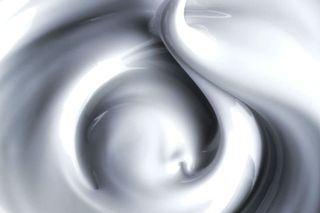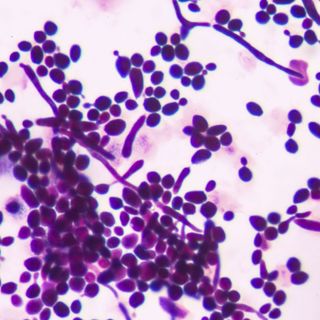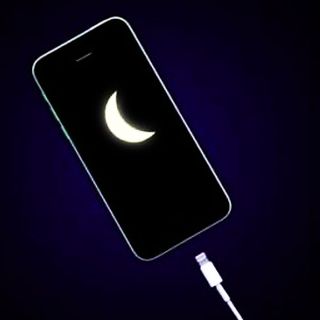
Moisturizing Daily May Actually Damage Skin Rather Than Help It
Using a lotion or cream daily can slow down natural exfoliation and reduce the skin’s ability to naturally replenish moisture.

While winter’s a month away, it might be a good time to revisit the most important cold weather cultural artifact after sweaters and hot chocolate: moisturizers. Though specifically beloved in the winter, moisturizers have been important to people regardless of the season. Many an advertisement and magazine has exalted the tubs of lotions, butters, and creams that banish ashy, dead residue for soft, dewy skin, just like the models’.
But, maybe its time to retire that habit: human skin doesn’t need moisturizing, unless it’s exposed to super dry climates or afflicted with a dry skin-causing condition, like psoriasis or eczema. While this claim appears controversial to make, many dermatologists believe the daily use of moisturizers is an abuse of the product that might do more harm than good.
To understand why, it helps to know what moisturizers are made of. Moisturizers are oil-water mixtures that comprise:
- Water
- Emollients, or, compounds added to make the skin feel smooth. Examples are squalane, cholesterol, and ceramides.
- Humectants, or, compounds added to draw water from the skin’s deeper layers and humid air. Examples are hyaluronic acid and glycerol.
- Occlusives, or, compounds added to seal in the skin’s moisture. Examples are petrolatum, mineral oil, silicones, and lanolin.
- Protein rejuvenators, which aid skin rejuvenation by replenishing proteins. Examples are collagen, keratin, and elastin.
Moisturizers can be light like body oils, sheer like body lotions, and sumptuous like body butters. (The latter have the most occlusives in them.)
Related on The Swaddle:
Facial Serums Work Well Because Their Star Ingredients Are Highly Concentrated
People often feel the need to apply moisturizer immediately after washing their faces because they’ve been conditioned to, and because their skin feels super dry and tight post a cleanse. Washing one’s face with high-pH soaps that contain foaming agents like sodium lauryl sulfate “allows unwanted deeper penetration of the soap into the skin, possibly causing irritation and itching. … following the completion of washing, the excess water evaporates, leading to skin tightness and dryness because the soap binding reduces the ability of the skin proteins to hold water,” writes Dr. Zoe Diana Draelos for Dermatology Times. Face cream or lotion used after a cleanse immediately replenishes this lost moisture, making the skin temporarily feel nourished and dewy. The skin doesn’t need this as it is naturally capable of producing its own moisture from within the body. One could avoid this by using soaps that do not have strong foaming agents, diluting the soap, and not scrubbing too hard so that the skin is cleansed, not scrubbed dry.
“When you use [a] moisturizer every day, you run the risk of making your skin older, not younger. … If you apply a lot of moisture, [the] skin will become sensitive, dry, dull, and interfere with natural hydration,” Dr. Zein Obagi, a dermatologist and the founder of skincare line ZO Skin Health, told Refinery29. Dr. Obagi added that when constantly moisturized, skin gets addicted to replacement moisture and stops supplying the it’s own hydration — making daily moisturizing a necessity.
Related on The Swaddle:
Everything You Need to Know About Skin Cancer
However, not all skin types and conditions can sustain self-hydration — especially those with dryer skin than usual, or certain skin conditions. In cases like these, a dermatologist’s recommendations are best to follow. Dr Obagi’s advice is mainly for those with normal skin — and he recommends hydration on certain extreme occasions, like during flights and cold weather, as compared to the regular moisturization schedules of many. “All your skin really needs is cleansing, stimulation, and protection.”
Daily moisturization can have many other disadvantages, too. It can slow down the skin’s natural exfoliation process. Since the skin needs to shed dead cells every day and replace them with fresher, stronger cells, having a sticky barrier on top of the skin means that the dead skin cells just float upon the fresher skin rather than falling off. “Your skin has a homeostatic balance that it will inevitably return to, so applying a moisturizer that’s just forming some kind of barrier won’t ‘fix’ much,” Dr. David Jack, a plastic surgeon, told Refinery29.
This doesn’t mean we all must toss out our lotions and body butters and abandon all moisturizing — there is nothing damaging about giving one’s skin a moisture boost on occasion. Just don’t make a habit out of it.
Aditi Murti is a culture writer at The Swaddle. Previously, she worked as a freelance journalist focused on gender and cities. Find her on social media @aditimurti.
Related


Everything You Need to Know About Vaginal Yeast Infections
